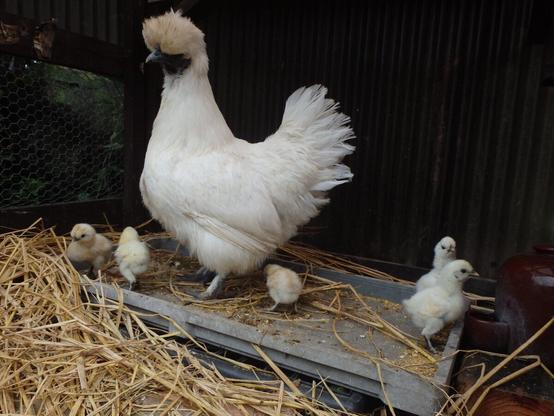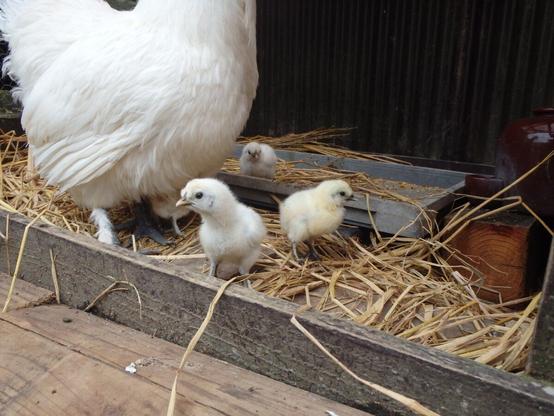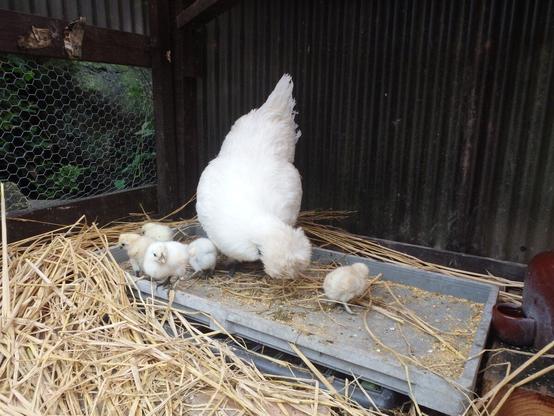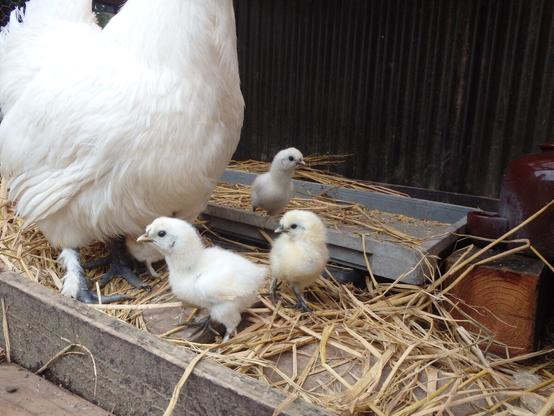> ニワトリ人類を変えた大いなる鳥 / ロウラー
#AndrewLawler
Because I told her to get off the neighbor's land.
Why did the chicken cross the world?
Ask #AndrewLawler , his book motivated me to spread Chicken Power!! The decentralizing, democratizing, ecology-saving magic of chickens replacing the big livestock, like in West Africa... Some anthropologist is working out that story..
#SilkyChickens #BackyardChickens #ChickenCrossRoad #
#SilkyChickens #BackyardChickens #烏骨鶏 #AndrewLawler
#WhyDidTheChickenCrossTheWorld
> Kirikongo’s chickens are currently the earliest known in #SubSaharanAfrica, and I have argued that chickens are of greater relative importance in egalitarian political systems since they are less likely than other domestic animals to be a symbol of inequality. These results are featured in the 2014 popular science book Why Did the Chicken Cross the World: The Epic Saga of the Bird that Powers Civilization by #AndrewLawler
https://blogs.uoregon.edu/dueppen/kirikongo-archaeological-project/
- https://blogs.uoregon.edu/dueppen/kirikongo-archaeological-project/
#AndrewLawler #StephenDueppen #KirikongoProject #EgalitarianSociety
#BurkinaFaso
#BackYardChickens #SilkyChickens #SilkyChicks #烏骨鶏
#AndrewLawler's book:
> Dueppen believes that the rejection of cattle and hierarchy hinged on the availability of the chicken.
> Come the revolution, the fowl provided a viable alternative to the cow.
> Chicken bones quickly replace those from cattle. #Cattle are traditionally a male domain, whether in Britain or Burma, while chickens are typically under female control in pre-industrial cultures. #Dueppen suspects that women may have played a key role in overturning Kirikongo’s nascent elite.
> Kirikongo’s chickens are currently the earliest known in sub-Saharan Africa, and I have argued that
> #chickens are of greater relative importance in #egalitarian political systems since they are less likely than other domestic animals to be a symbol of inequality.
> These results are featured in the 2014 popular science book Why Did the Chicken Cross the World: The Epic Saga of the Bird that Powers Civilization by #AndrewLawler
#BackyardChickens #SilkyChickens
> As the poison numbed #Socrates’s feet, legs, and then groin.. [He] turned to his friend #Crito and said, “We owe a cock to #Asclepius,” referring to the Greek god of healing and medicine. “Pay the debt. Don’t forget.” His weeping friend agreed.. moments later.. Socrates expired. The last words of a condemned revolutionary thinker, who was praised by his famous student #Plato as “the best and wisest and most righteous man,” were about a #chicken.
#AndrewLawler in #WhyDidTheChickenCrossTheWorld
#AndrewLawler #WhyDidTheChickenCrossTheWorld



